Best Used Server for Home Lab
Content:
Home labs have emerged as essential environments for tech enthusiasts, professionals, and hobbyists alike, offering a playground for experimentation, learning, and innovation within the confines of one's home. As the demand for personal development and testing environments grows, the importance of selecting the right server for a home lab setup becomes increasingly evident.
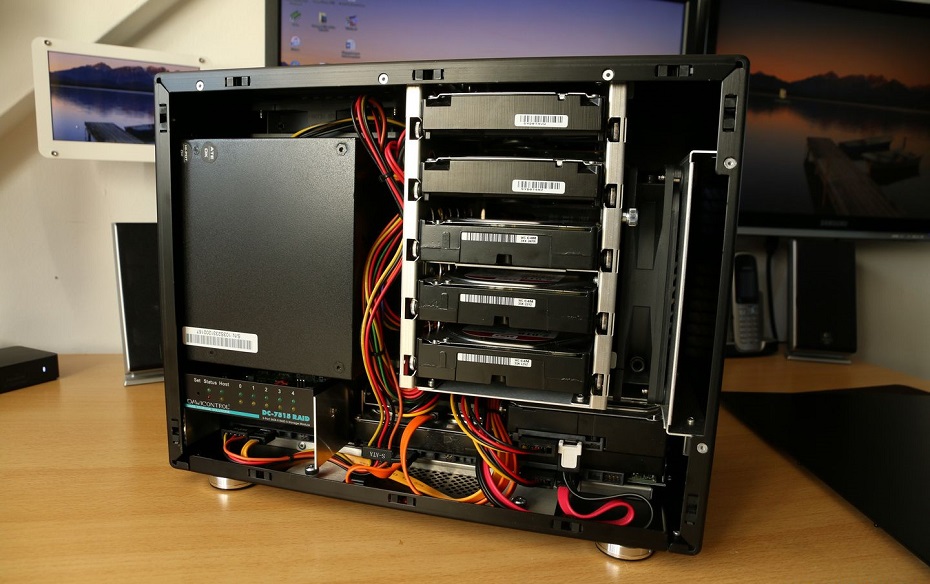
In this article, we delve into the realm of home labs, exploring their significance in today's technology landscape and providing insights into choosing the optimal server to power these environments. Whether you're a software developer looking to test new applications, a cybersecurity enthusiast honing your skills, or simply a tech aficionado eager to explore the possibilities, understanding the nuances of selecting the best-used server for your home lab is paramount. Let's embark on this journey together to unlock the potential of your home lab experience.
Criteria for Selecting a Used Server
When it comes to choosing a used server for your home lab, several key criteria should guide your decision-making process. Understanding these factors will not only help you make an informed choice but also ensure that your server aligns with your specific needs and budget constraints. Here are some essential considerations to keep in mind:
-
Budget considerations: Begin by establishing a budget for your home lab server. Determine how much you're willing to invest upfront and factor in any potential additional costs for upgrades or maintenance.
-
Performance requirements: Assess the performance needs of your home lab based on the tasks you intend to perform. Consider factors such as processing power, memory capacity, and storage requirements to ensure your server can handle your workload efficiently.
-
Scalability and upgradability: Look for a server that offers scalability and upgradability to accommodate future growth. Opt for a model that supports additional memory, storage, and expansion cards, allowing you to expand your home lab infrastructure as needed.
-
Power consumption and noise levels: Take into account the power consumption and noise levels of the server, especially if it will be located in a home environment. Choose a server that strikes a balance between performance and energy efficiency, while also minimizing noise to ensure a comfortable working environment.
-
Compatibility with preferred operating systems and software: Ensure that the server you choose is compatible with your preferred operating systems and software applications. Consider factors such as driver support, firmware compatibility, and community support for your chosen platform to avoid compatibility issues down the line.
By carefully evaluating these criteria, you can select a used server that meets your home lab requirements while staying within your budget and ensuring optimal performance and compatibility.
Best Used Servers for Home Labs
Selecting the right server is crucial for creating an effective home lab environment. Whether you're testing new software, experimenting with virtualization, or honing your IT skills, the server you choose will significantly impact your experience.
Best Used Rack-Mounted Servers for Home Labs
Rack-mounted servers offer compact and efficient solutions for home lab enthusiasts, providing powerful computing capabilities in a space-saving form factor. Here are three standout options from Dell and HP, along with their key specifications and descriptions:
Dell PowerEdge R740
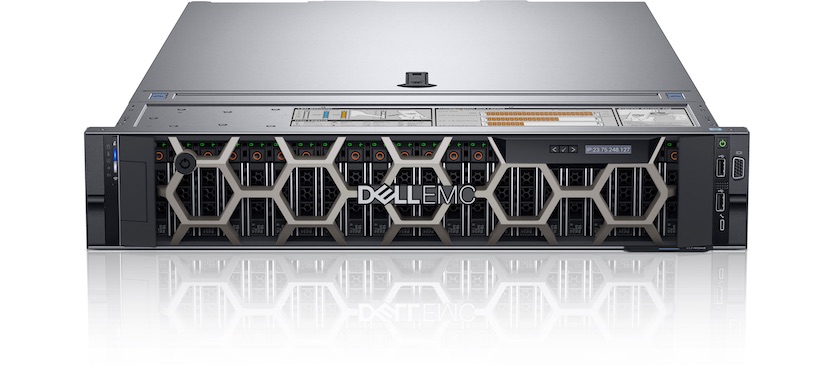
The Dell PowerEdge R740 is a versatile rack server that delivers exceptional performance and scalability for various home lab applications. With support for high-density storage configurations and robust processing power, it's ideal for virtualization, containerized workloads, and data-intensive tasks.
Key Specs:
-
Processor Options: Intel Xeon Scalable processors (up to 28 cores)
-
Memory Capacity: Up to 3TB DDR4 RDIMM/LRDIMM
-
Storage Options: Supports up to 16 x 2.5" SAS/SATA SSDs or 8 x 3.5" SAS/SATA HDDs
-
Expansion Slots: Up to 3 PCIe 3.0 slots
Dell PowerEdge R750

The Dell PowerEdge R750 represents the latest in Dell's rack server lineup, offering enhanced performance and scalability for demanding home lab environments. With support for next-generation PCIe 4.0 technology and increased memory capacity, it's well-suited for intensive workloads such as AI/ML experimentation and database management.
Key Specs:
-
Processor Options: Intel Xeon Scalable processors (up to 40 cores)
-
Memory Capacity: Up to 4.5TB DDR4 RDIMM/LRDIMM
-
Storage Options: Supports up to 32 x 2.5" SAS/SATA SSDs or 16 x 3.5" SAS/SATA HDDs
-
Expansion Slots: Up to 8 PCIe 4.0 slots
HPE ProLiant DL380 Gen10
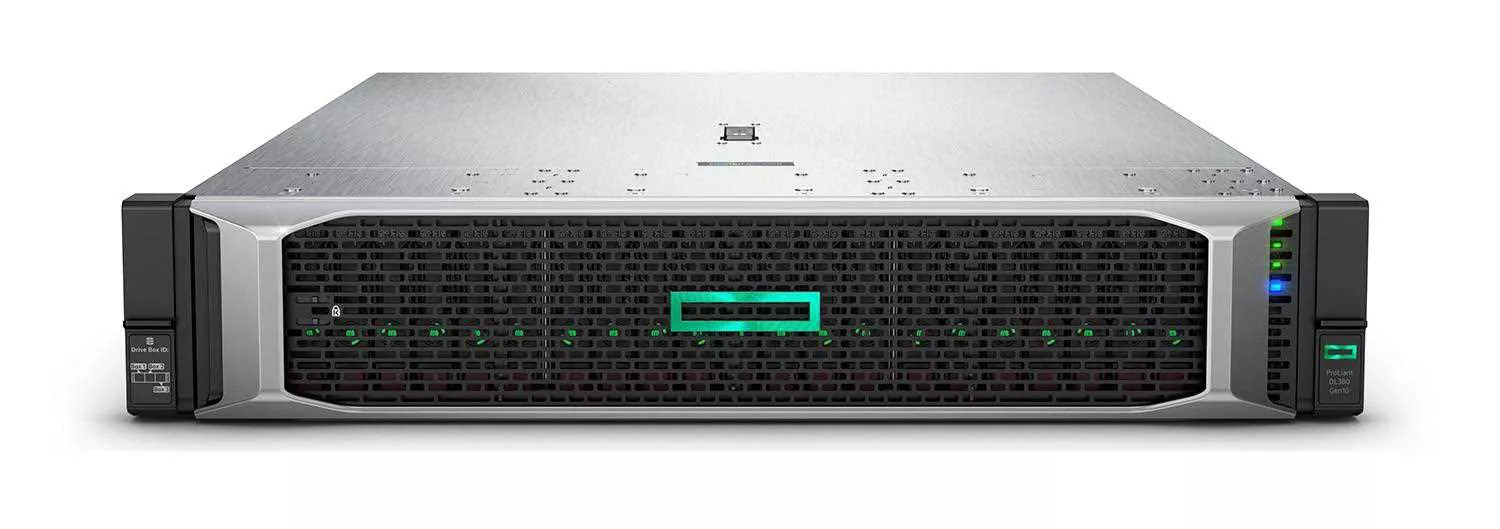
The HPE ProLiant DL380 Gen10 is a reliable and versatile rack server that offers robust performance and scalability for home lab environments. With its flexible storage options and comprehensive management features, it's an excellent choice for virtualization, cloud computing, and software-defined storage applications.
Key Specs:
-
Processor Options: Intel Xeon Scalable processors (up to 28 cores)
-
Memory Capacity: Up to 3TB DDR4 RDIMM/LRDIMM
-
Storage Options: Supports up to 30 SFF SAS/SATA SSDs or 20 LFF SAS/SATA HDDs
-
Expansion Slots: Up to 6 PCIe 3.0 slots
These rack-mounted servers from Dell and HP provide the foundation for building a powerful and efficient home lab infrastructure, empowering users to explore new technologies and enhance their skills in a customizable environment.
Best Used Tower Servers for Home Labs
Tower servers offer a convenient and flexible solution for home lab enthusiasts, providing reliable performance in a compact and standalone chassis. Here are three top choices from Dell and HP, along with their key specifications and descriptions.
Dell PowerEdge T640
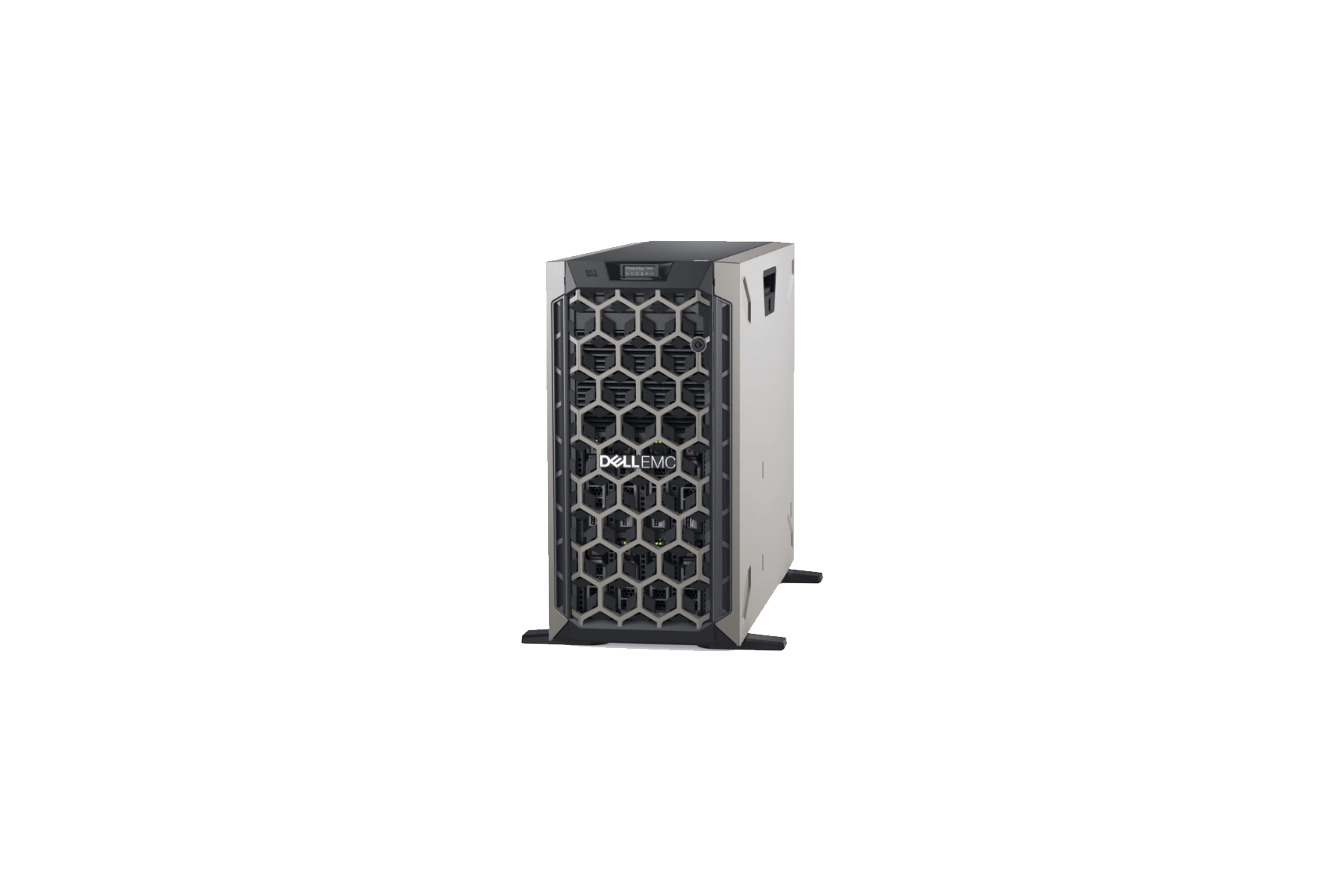
The Dell PowerEdge T640 is a versatile tower server that delivers high-performance computing capabilities for various home lab applications. With its scalable architecture and extensive storage options, it's well-suited for virtualization, data analytics, and software development projects.
Key Specs:
-
Processor Options: Intel Xeon Scalable processors (up to 28 cores)
-
Memory Capacity: Up to 3TB DDR4 RDIMM/LRDIMM
-
Storage Options: Supports up to 32 x 2.5" SAS/SATA SSDs or 18 x 3.5" SAS/SATA HDDs
-
Expansion Slots: Up to 8 PCIe 3.0 slots
Dell PowerEdge T650
The Dell PowerEdge T650 represents the pinnacle of tower server technology, offering unparalleled performance and scalability for demanding home lab environments. With its advanced features and next-generation PCIe 4.0 support, it's ideal for resource-intensive workloads such as virtualization, machine learning, and big data analysis.
Key Specs:
-
Processor Options: Intel Xeon Scalable processors (up to 40 cores)
-
Memory Capacity: Up to 4.5TB DDR4 RDIMM/LRDIMM
-
Storage Options: Supports up to 32 x 2.5" SAS/SATA SSDs or 18 x 3.5" SAS/SATA HDDs
-
Expansion Slots: Up to 9 PCIe 4.0 slots
HPE ProLiant ML350 Gen10
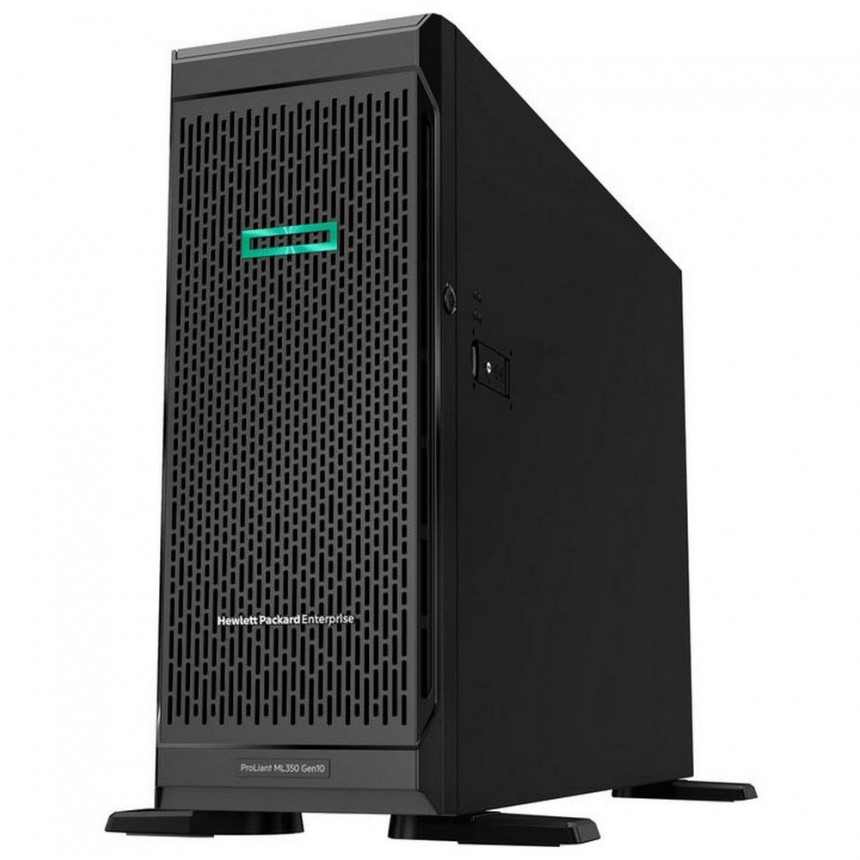
The HPE ProLiant ML350 Gen10 is a reliable and versatile tower server that offers exceptional performance and expandability for home lab environments. With its flexible storage options and comprehensive management features, it's an excellent choice for small to medium-sized businesses, remote offices, and branch deployments.
Key Specs:
-
Processor Options: Intel Xeon Scalable processors (up to 28 cores)
-
Memory Capacity: Up to 3TB DDR4 RDIMM/LRDIMM
-
Storage Options: Supports up to 24 SFF SAS/SATA SSDs or 16 LFF SAS/SATA HDDs
-
Expansion Slots: Up to 6 PCIe 3.0 slots
These tower servers from Dell and HP provide the foundation for building a robust and scalable home lab infrastructure, enabling users to experiment, innovate, and learn in a secure and efficient environment.
Tips for Purchasing a Used Server
When venturing into the realm of purchasing a used server for your home lab, it's essential to navigate the market with caution and informed decision-making. Here are some valuable tips to consider before making your purchase:
-
Trusted Vendors and Marketplaces: Seek out reputable vendors and marketplaces known for their reliability and transparency in selling used servers. Look for reviews and recommendations from other buyers to ensure a positive purchasing experience.
-
Inspecting Hardware Condition and Warranty Status: Before finalizing your purchase, thoroughly inspect the hardware condition of the server. Check for any signs of wear and tear, such as scratches, dents, or damaged components. Additionally, inquire about the warranty status to determine if any coverage is still in place for potential repairs or replacements.
-
Negotiating Price and Shipping Terms: Don't hesitate to negotiate the price and shipping terms with the seller to ensure you're getting the best deal possible. Consider factors such as the server's age, specifications, and overall condition when negotiating the price. Additionally, discuss shipping options and costs to avoid any surprises during the purchasing process.
-
Considerations for Potential Upgrades and Maintenance Costs: Anticipate potential upgrade paths and maintenance costs associated with the used server. Factor in the cost of additional memory, storage, or other components you may need to enhance its performance and functionality over time. Additionally, research the availability of spare parts and ongoing support for the server model you're considering.
By following these tips, you can navigate the process of purchasing a used server for your home lab with confidence and ensure that you're making a well-informed investment in your technology infrastructure.
Conclusion
In conclusion, selecting the best-used server for your home lab is a pivotal decision that can significantly impact your learning and experimentation journey in the realm of technology. By carefully considering factors such as performance requirements, scalability, and compatibility with your preferred software, you can choose a server that meets your specific needs and budget constraints.
As you embark on your journey of building and optimizing your home lab environment, remember that continuous learning and experimentation are essential. Your home lab serves as a playground for innovation and discovery, allowing you to explore new technologies, test software applications, and enhance your skills in a hands-on manner.
So, whether you're a seasoned IT professional seeking to expand your knowledge or a curious enthusiast eager to dive into the world of technology, embrace the opportunities that your home lab presents. With the right server as your foundation, the possibilities for growth and discovery are endless.